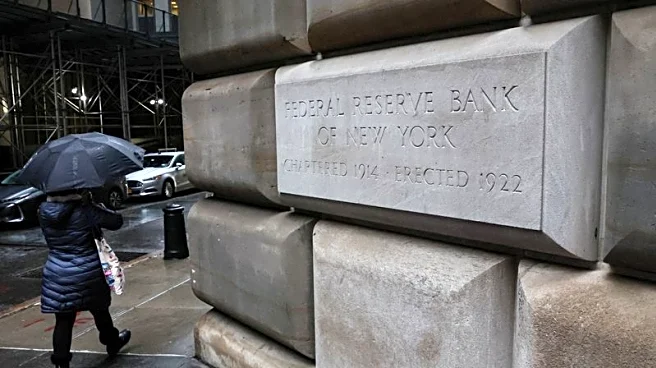What's Happening?
A United Nations report has exposed a $2.2 billion corruption scheme in South Sudan, implicating the country's ruling class in systemic looting of national wealth. The report details how South Sudanese authorities disbursed funds through the 'Oil for Roads' program to companies linked with Vice President Benjamin Bol Mel, with over 90% of promised infrastructure projects remaining unbuilt. The corruption has exacerbated South Sudan's security challenges and economic instability, with the country's GDP plummeting from $12 billion in 2011 to $5.4 billion in 2024. The report highlights the predatory elite's role in institutionalizing corruption, contributing to the nation's poverty and civil strife.
Why It's Important?
The revelation of widespread corruption in South Sudan underscores the challenges faced by resource-rich nations in managing their wealth. South Sudan's heavy reliance on oil exports makes it vulnerable to economic shocks, and the corruption scandal threatens to deter foreign investment needed to develop untapped reserves. The situation highlights the 'resource curse,' where countries with abundant natural resources struggle with governance issues and economic instability. The UN report's findings may prompt international scrutiny and pressure for reforms, but the entrenched corruption poses significant obstacles to achieving transparency and accountability.
What's Next?
The exposure of the corruption scheme is likely to lead to increased international pressure on South Sudan to implement reforms and improve governance. The country's reliance on oil exports through Sudan presents geopolitical risks, as tensions between the Sudanese Armed Forces and the Rapid Support Forces could disrupt oil transportation. The potential for regional instability and economic collapse remains high, necessitating diplomatic efforts to address the underlying issues. South Sudan's government may face challenges in attracting foreign investment to develop its oil reserves, as the corruption scandal has damaged investor confidence.
Beyond the Headlines
The corruption scandal in South Sudan highlights broader ethical and governance issues faced by resource-rich nations. The systemic looting of national wealth raises questions about the role of international actors and the effectiveness of aid and development programs. The situation in South Sudan serves as a cautionary tale for other countries grappling with similar challenges, emphasizing the need for robust institutions and transparent governance to harness natural resources for sustainable development.











